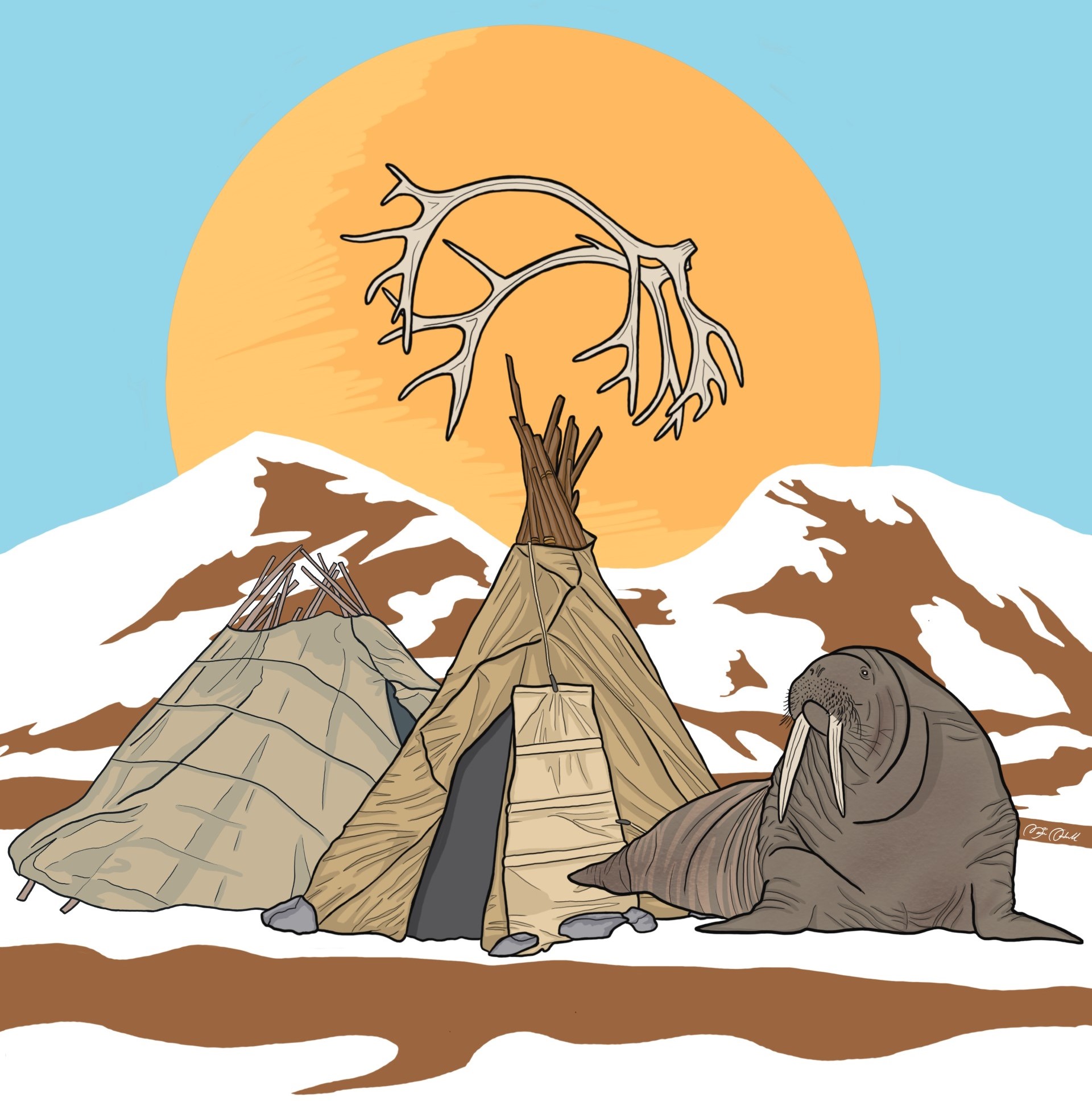Project facts
Presentation
ArcHeritage is the UK component of one of six international projects for the Joint Project Initiative on Cultural Heritage, Society and Ethics. It will run from academic year 2023/24 for three years and aims to explore the commodity chains of three iconic heritage artefacts in the Arctic: reindeer antler, the conical tent, and mammoth and walrus ivory.
The project will trace the oral histories and new market and social entanglements of these artefacts across several sites in Sápmi, Canada, and Greenland, linking them to historical pastoralist and hunting lifeways and their transformation over time. In recent years, each artefact has taken a new form within the heritage and tourism industries:
- reindeer antler as Traditional Chinese Medicine;
- the conical tent as a fixed tourism dwelling;
- and ivory as souvenir carvings.
They thus tell a wider story of Arctic heritage and the relationship between indigenous producers, consumers, and the market.
Our objectives are to research the transformation of the artefacts into heritage objects and their movement across national and international commodity chains. We will follow their material and symbolic journeys through historical and emergent networks of harvesting, production, commercialisation, and consumption.
We will use ethnographic fieldwork, in-depth interviews, and zooarchaeological analysis to investigate ancient and contemporary trade. We hypothesise a gap between the commercialisation of the artefacts and their non-utilitarian value in terms of skills, communities of practice, and experience-based knowledge. We anticipate this to feed into debates about tradition, ecological sustainability, and cultural loss, as well as renewed calls for cultural protection, revitalisation, and legislation. The project will thus tackle questions surrounding the ethics of heritage and ethnic tourism, the viability and sustainability of craft production, so-called ‘heritage-isation’ of indigenous culture, and the cultural politics of heritage in the context of the Arctic.

